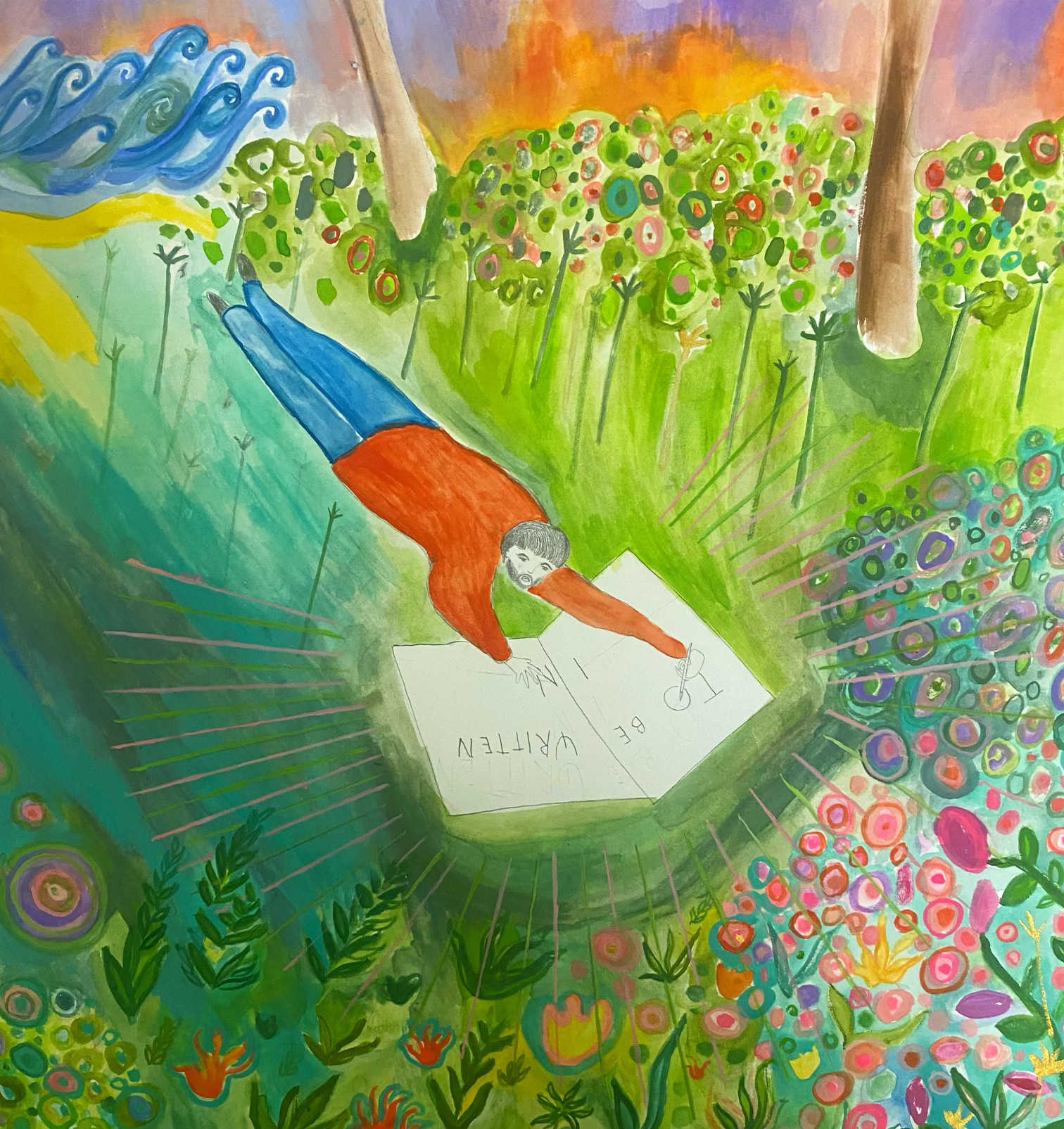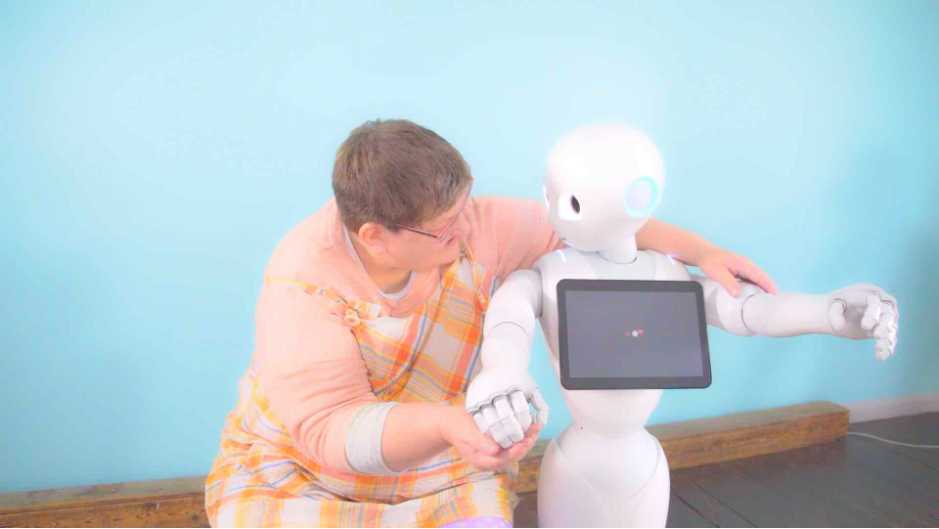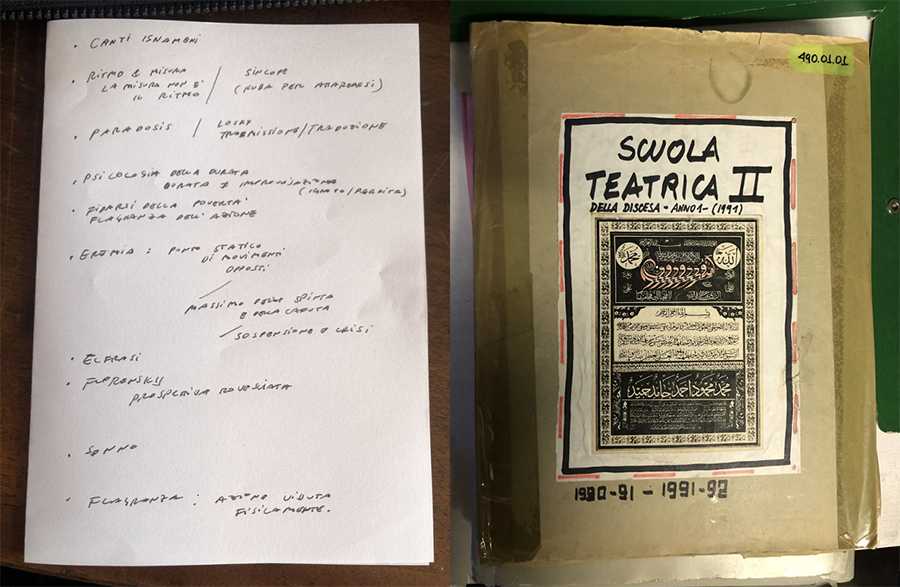COOP ~ On Tradition - Future Ancestors 3: The Mother, The Archival and The Symbolic Order from Month to Month
Seminar 7: 12 - 17 June 2023
Monday - DAY 1
11:00 - Nourishing Rhythms to arrive in Space
11:30 - 14:00 - Reviewing Summit, All Technicalities, Working Structure for Week
15:00 - 17:00 - Sub Group work - Painting Group, Performance Group, Singing Group
16:00 - 20:00 - Group Reflection (Songs and wider content)
Tuesday - DAY 2
11:00 - 14:00 - Song Learning and Painting
15:00 - 17:00 - Rehearsing
18:00 - 20:00 - Individual Group Time
Wednesday - DAY 3
11:00 - 12:00 - Song Learning and Painting
12:30 - 14:00 - Rehearsing Together
15:00 - 17:00 - Individual Group Time
18:00 - 20:00 - Rehearsing
Wednesday - DAY 4
11:00 - 12:00 - Warm Up
12:30 - 14:00 - Rehearsing Together
15:00 - 17:00 - Rehearsing Together
18:00 - 20:00 - Last Practicalities
Seminar 6: 18 - 20 May 2023
18 May 2023
10:00 - 13:00 Somatic reading 1 lead by Pelumi and Snejanka
Lunch break
14:00 - 19:00 Immersive Workshop lead by Marilú Mapengo Namoda (DAI 2022)
Dinner break
Pause
19 May 2023
10:00 - 13:00 Resonance lead by Marilú Mapengo Namoda (DAI 2022)
Lunch break
14:00 - 17:00 Face to face with Marilú Mapengo Namoda (DAI 2022)
* Allocated Time for Summit
Dinner break
20:00-22:00 Allocated Time for Planning the Summit
20 May 2023
10:00 - 13:00 Somatic reading 2 lead by Pelumi and Snejanka
Lunch break
14:00 - 17:00 Summit Time
Dinner break
20:00-22:00 Summit Time
IYÀ ONILÉ
SELF-MOTHERING, HEALING, AND BIRTHING THE EARTH ANEW
What is to (re) member Mother Earth?
What is to (un) learn motherhood from her and to immerse ourselves in self-mothering/self-care practices of milky mysteries* from where we get the nutrition we need to heal and self-birth? What is to birth the Earth anew?
In this immersive and experimental workshop, we invoke our bodies' inherent wisdom to be present both as an archive and site of healing the colonial wound; Healing the Western paradigm where the self ( I*) is separated from the collective primordial Mother, Nature!
In this sense, this journey awakes the Self ( I*) not only to care but also to dilute, expand and integrate the forgotten sense of Oneness with our more-than-human family, the all!
* Onilé is the Yorubá Orixá that responds as Earth, Iyà Onilé means Mother Earth
* FIND IN THE LINK BELOW A PERSONAL REFLECTION ON SELF-CARE INSPIRED BY IYÀ OXUM, THE DIVINE FEMININE ARCHETYPE
The text is 10 min reading
>>> https://mmaapengonamoda.com/home/love-praxis-blog <<<
*
MOTHERING OUR MOTHER - An exercise on the act of care
Please, take the opportunity of being located on an island and find something from the Natural life to take care of/ to mother for at least one week previous to our meeting on May 18th. You can choose to mother anything just like a portion of water, a leaf, a stone etc. etc
This is an invitation to mother our primordial mother, Nature and to use this exercise to reflect on the act of care, on how do you take care of your self, how do you self-mother and how to mother the futureS.
*
PLEASE, FILL OUT THIS FORM
IT IS MEANT TO OFFER SOME PROMPTS TO YOUR MOTHERING PRACTICE
https://docs.google.com/forms/d/18J3YKJsDhhDIGP9oI7iEf7TMfBuTDYHGH6NgXPu8xeI/edit
*
LOVE & AXÉ!
m
Seminar 5: 19 - 21 April 2023
Dear Ania, Baoxin, Evija, Gamze, Gleb, Iarlaith, Louis, Maxi, Mara, Pelumi and Theresa.
Happy Post Spring Equinox!
I hope this finds you all very well. For our 4th meeting, the session will be facilitated by Rory where we will continue our study focussing specifically on the practice of icon painting, and how we represent the mother pictorially in relation to iconography and the symbolic order. By doing so, we invite you to consider forms of representation and spiritual homage from a very specific tradition and how its relates or bring questions to ideas you are exploring in your work and traditions.
To do this, we are very lucky to be joined by our guest Maaria Treima, an artist and icon painter from Estonia based on the island of Saaremaa. Following the tradition of icon painting in the Christian Eastern Orthodox Tradition, we will have the opportunity to learn from Maaria about her work, in particular to her own relationship of representing the mother and creating icons today. We will also learn about the skills, processes and techniques used in which you are invited to learn some of these techniques to each create your own icon. Doing this, you will be asked to think about the symbols and ways of representing a person or ‘entity’ you want to dedicate and create an icon of.
For the workshop with Maaria, each of you will receive a wooden panel and paintbrushes each that you are able to keep afterwards.
* Note please bring your own pencil sharpener and eraser.
Following from the last session we invite you also to think about an image related to ‘the mother’ and share this to the group as a way of furthering and bringing more depth to our dialogue. This again might not be ‘a mother’ as human, but ‘mother’ as a word to be ‘expanded’ and embodied in visual form for example to land, nature, technology etc.. We will share these over the three days, most likely using the evening and final day. For the third day, we will also use the time to continue working and preparing the summit.
There will also be time needed to review the individual mid year assessments with Rory.
We look forward to seeing you at PAF!
Wednesday 19th April
10:00 - 11:00 Nourishing rhythm led by Rory.
11:00 - 13:00 Presentation of Maaria and talking about iconography
Lunch break
14:00 - 14:30 Listening to music
15:30 - 18:00 Sketching and developing your icon
Dinner Break
20:00-22:00 Sharing images of the mother
Thursday 20th April
10:00 - 11:00 Nourishing rhythms
11:00 - 13:00 Painting your icon and learning practical painting techniques
Lunch break
14:00 - 14:30 Listening to music
14:30 - 18:00 Paining and sharing your icons
Dinner break
20:00-22:00 Sharing images of the mother
Friday 21st April
9:30 - 10:00 Individual Evaluations
10:00 - 11:00 Nourishing rhythms
11:00 - 13:00 Summit
Dinner break
14:00 - 14:30 Listening to music
14:30 - 18:00 Summit
Seminar 4: 8 - 10 March 2023
Dear Ania, Baoxin, Evija, Gamze, Gleb, Iarlaith, Louis, Maxima, Mara, Pelumi and Theresa Happy New Year! We are very much looking forward to seeing you all in PAF
For this 3rd session of our coop research group we will begin to approach the summit in both content and methodology while also looking at how we deepen our work together through creative manifestation. While being very much concentrated on content in our previous sessions this time we would like to focus on making and see how the ideas we have been working on are reflected in the creation process.
Guiding this process, we will be joined by input of both a guest online, poet and disability advocate Carol R. Kallend who speak about her thoughts on robots, AI and the future of care as well as a new poem made for our COOP. Additionally to this we will bring a series of materials as suggestions to further our thinking on The Mother, The Archive and The Symbolic Order.
Every morning we will continue working through these questions somatically with the body through progressing from guardian angels, to ‘techno guardian angels’. For these sessions, we invite you also to think especially about the question of perspective. As an introduction to this, please take time to watch this short video 3 minute video:
Liv Ullman reflecting on a scene from the film The Emigrants (1971), Jan Troell
https://www.youtube.com/watch?v=AQ4UvOczjnw
You will have time for both individual and collective tasks from which we hope to form a concrete idea about how we want to approach the summit. Also face to face meetings are going to be scheduled with both Snejanka and Rory.
Tuesday 7th March
Arrival at PAF. Communal dinner. Brief encounter with the group (transition to COOP)
Wednesday 8th January
10:00 - 13:00 Nourishing rhythm led by Rory.
Drawing - Assignment and Thinking
Lunch break
14:00 - 17:00 Listening to music (25’);
Guest - poet Carol R Kallend
Assignment Allocation Time
Dinner break
20:00-22:00 Screenings: (TBC)
If any student would like to propose something to watch please let us know.
Thursday 9th March
10:00 - 13:00 Nourishing rhythm & Reading Together
Lunch break
14:00 - 17:00 Listening to music (25’) Assignment Allocation Time and 1 on 1s
14:30 - Nikos & Peter introduces the summit preparations needed
Dinner break
20:00-22:00 Screening: Andrei Rublev by Andrei Tarkovsky
Friday 10th March
10:00 - 13:00 Nourishing rhythm &Show time
Lunch break
14:00 - 17:00 Show time
Dinner break
20:00-22:00 Feedback and Planning
Seminar 2 & 3: 14 - 19 January 2023
“As they step into the same rivers, other and still other waters flow upon them.”[1]
Heraclitus, fragment L.
“Poetic language (...) is concerned with precision; (…) it names, it posits,
it tries to measure the area of the given and the possible.”[2]
Paul Celan
[1] Charles H. Khan, The Art and Thought of Heraclitus: An Edition of the Fragments with Translation and Commentary (Cambridge: Cambridge University Press, 1979)
[2] Paul Celan, Collected Prose, translated by Rosemary Waldrop, The Sheep Meadow Press, 1986, 16.
Dear Ania, Baoxin, Evija, Gamze, Gleb, Iarlaith, Louis, Maxima, Mara, Pelumi and Theresa Happy New Year! We are very much looking forward to seeing you all in Lithuania.
For this second (third) week of our coop research group we will look more closely at the notions of image, image - making, and the diverse cultural understandings of images in relation to language, the archival and the symbolic order. Our attention will be directed towards questions of rhythm, metrics and listening. Bringing to surface the possibility of composition based on the invisible we will try to redefine our own vocabulary that prioritize relation over representation.
The program in Nida will be divided into two parts. For the first part we invited the choreographer and writer Cludia Castellucci and the typographer and literary scholar Andrea di Serego Alighieri to compose a program around questions of rhythm, listening, writing/drawing and archiving. During the session, Claudia will introduce and share her practice in the field of performance, dance and radical pedagogy. Focusing on choreographic exercises relating to rhythm, scoring and description she will also introduce sessions of music-listening, mnemonics, close-readings and drawing exercises. Andrea's focus will be on English translation – presenting and sharing a short excerpt of Claudia’s book Setta, disclosing some of her archive as well as serving as an interpreter – and he will introduce some writing exercises connected to questions of rhythm and measure drawn from his recent visit to the Poetry archive of UC San Diego.
During the second part of our study group guided by Rory and Snejanka we will think of the summit and also will engage with your creative responses on the material elaborated during our stay in NIDA. In that second part also face to face meetings are going to be scheduled upon request.
Week Structure:
Friday 13th January
Arrival at Nida. Communal dinner. Brief encounter with the group (transition to COOP)
Saturday 14th January
Led by Snejanka, Claudia, Andrea
10:00 - 13:00 Gymnastics(20'); context and introduction (10-15’) coro/gymnastics (30’); pause (10’); close reading: The reversed prospective by Pavel Florenskij
Lunch break
14:00 - 17:00 Listening to music (25’); Drawing of Smoke (incense); The Art of Smoke by Florenskij, close reading; A walk
Dinner break 20:00-22:00 Free program. Readings & conversations
Sunday 15th January
Led by Snejanka, Claudia, Andrea
10:00 - 13:00 Gymnastics(30’); Exercise on psychology of duration (introduction and few exercises); pause (10’); Exercise on psychology of duration.
Lunch break
14:00 - 17:00 Listening to music (25’); Ekphrasis (introduction to the exercise): Exercise of ekphrasis; Close reading and walk.
Dinner break
20:00-22:00 Learning to memorize the outcomes of the exercises of ekphrasis
Monday 16th January
Led by Snejanka, Claudia, Andrea
10:00 - 13:00 Gymnastics(20');
Andrea’s talk on rhythm, meter and inscription & disclosing Claudia Castellucci’s archive.
+
Writing exercises from assignments by Alice Notley’s and Bernadette Mayer’s workshops at St. Mark’s Church (1976)
Lunch break
14:00 - 17:00 Ekphrasis (performances)
Dinner break
20:00-22:00 Ekphrasis (performances)
EXTRA (if time allows):
Exercises on metrics, film on Giacometti.
Tuesday 17th January
Arrival Rory
Creative assignment and time for reflection and transition to the second part of the week.
Wednesday 18th January
led by Rory and Snejanka
10:00 - 13:00 Group grounding, checking-in, conversation on the summit
Lunch break
14:00 - 17:00 summit
Dinner break
20:00-22:00 Time allocated for assignment
Thursday 19th January
led by Rory and Snejanka
10:00 - 13:00 Show time assignment
Lunch break
14:00 - 17:00 Show time assignment
Dinner break
20:00-22:00 Conclusion, drinks, plans for future
Other useful information:
- The texts with some archive material from our first session can be found in shared google drive document: https://drive.google.com/drive/folders/1NNeHoidb-ywGk5hyQPMxdbuD78SfNTLl
- Information on our guests you can find on the website.
- The Books from the Library: we took some books from the library. I am in contact with Anick. When we are together we will make a list with titles and emails.
- A face to face meetings will be possibile during the week. We didn’t schedule them but the idea is to make time for them specially during the second part of the week.
Seminar 1: 22 - 24 November 2022
Dear Ania, Baoxin, Evija, Gamze, Gleb, Iarlaith, Louis, Maxima, Mara, Pelumi and Theresa we are very happy to welcome you to the study group On Tradition- Future Ancestors!
During our first week together let’s take time to meet one another. We will start our week in the office and archive of If I Can’t Dance, I Don’t Want To Be Part Of Your Revolution in Amsterdam. Here Frederique Berghholtz, director, and Anik Fournier, curator, will introduce you to the work of If I Can’t Dance. In the afternoon, we welcome Amsterdam based artist Sands Murray-Wassink. Our study group’s fields of inquiries resonate with Sands’ practice, and he will share with us some ensembles of works. Both lunch and dinner are organized by If I Can’t Dance and in this informal setting we hope there is ample time for us to start getting to know each other. On the second day, the work will focus on a collective thinking exercises in relation to the book The Symbolic Order of the Mother by Italian feminist philosopher Luisa Muraro, lead by Snejanka Mihaylova, and we will try to elaborate further on the study group themes. For the last day we will work on an assignment that connects your own work with the themes that emerged in the study group during the week. In this way we share with each other our practices.
Tuesday 22 November
10:30-11:30 Welcome coffee/tea in the If I Can’t Dance office in Amsterdam, opportunity to visit the library exhibition
11:30-13:00 Frederique Bergholtz – about If I Can’t Dance; Anik Fournier – about library exhibition Scoring Liveness and archive If I Can’t Dance
13:00-14:00 Lunch
15:00-17:00 Sands Murray Wassink – presentation
17:00-19:00 Drinks and food
After we return to Arnhem
Wednesday 23 November
10:00-13:00 The Symbolic order of the mother by Luisa Muraro, a collective thinking session lead by Snejanka Mihaylova and the study group.
“I do not speak of the mother metaphorically. I speak of her realistically, and in order to be clear, I will renounce, as much as possible, the beautiful and rich language that develops from the metaphor of the mother and from the symbolism of birth. The symbolism of birth is present in various spheres, from the religious ceremony of baptism to artistic production, or to the conception (conceptus) of philosophy. These metaphors are commonly considered an acknowledgment [riconoscimento] of the magnitude of the work of the mother. But since this acknowledgment too often does not recognize the social authority of women in the flesh, I think that it is rather a way of depriving the mother of her prerogatives” writes Luisa Muraro in her masterpiece The Symbolic Order of the Mother (1982). Today the leading feminist philosopher Luisa Muraro is 82 years old. With great passion she presents books, facilitates discussions and participates in meetings in the Women's Bookstore in Milan which she co-?founded in 1976. Throughout the year we will carefully read parts of this book in which she speaks of the potential of a practice of philosophy (and let us add artistic practice) not as a critical endeavor or as a “love (philia) of wisdom (sophia)” but as “learning to love the mother.” Meeting the mother is meeting the deepest strata in us. Recognizing the symbolic order of the mother is a step towards liberation. And learning to love the mother is...
13:00-14:00 Lunch
14:00-19:00 Students prepare for presentations on Wednesday 24 November
19:00-20:00 Dinner
Evening: watch film together or starting with the presentations
Wednesday 24 November
Present: Snejanka Mihaylova and Frederique Bergholtz
Students present their practice through the lens of the study groups theme.
10:00-13:00 Presentations
13:00-14:00 Lunch
15:00-18:00 Presentations
18:00-18:30 Round Around session - a preparation for the next DAI week.
18:30-20:00 Dinner
INFO
Keywords Connection - Matrix of Life - Relation - Symbolic Order - Unclassifiable - Imaginary – Imagination - Community - Communication
Starting questions What is a group, what makes us a group, what makes us individuals? Why do we want to be together? How do we nourish? How do we care? As we work through the year, how do we archive this work? How do we draw upon existing achievements and transform them? How to rethink a symbolic order anew?
Sands Murray Wassink
https://www.giftsciencearchive.net/
If I Can’t Dance I Don't Want To Be Part Of Your Revolution



